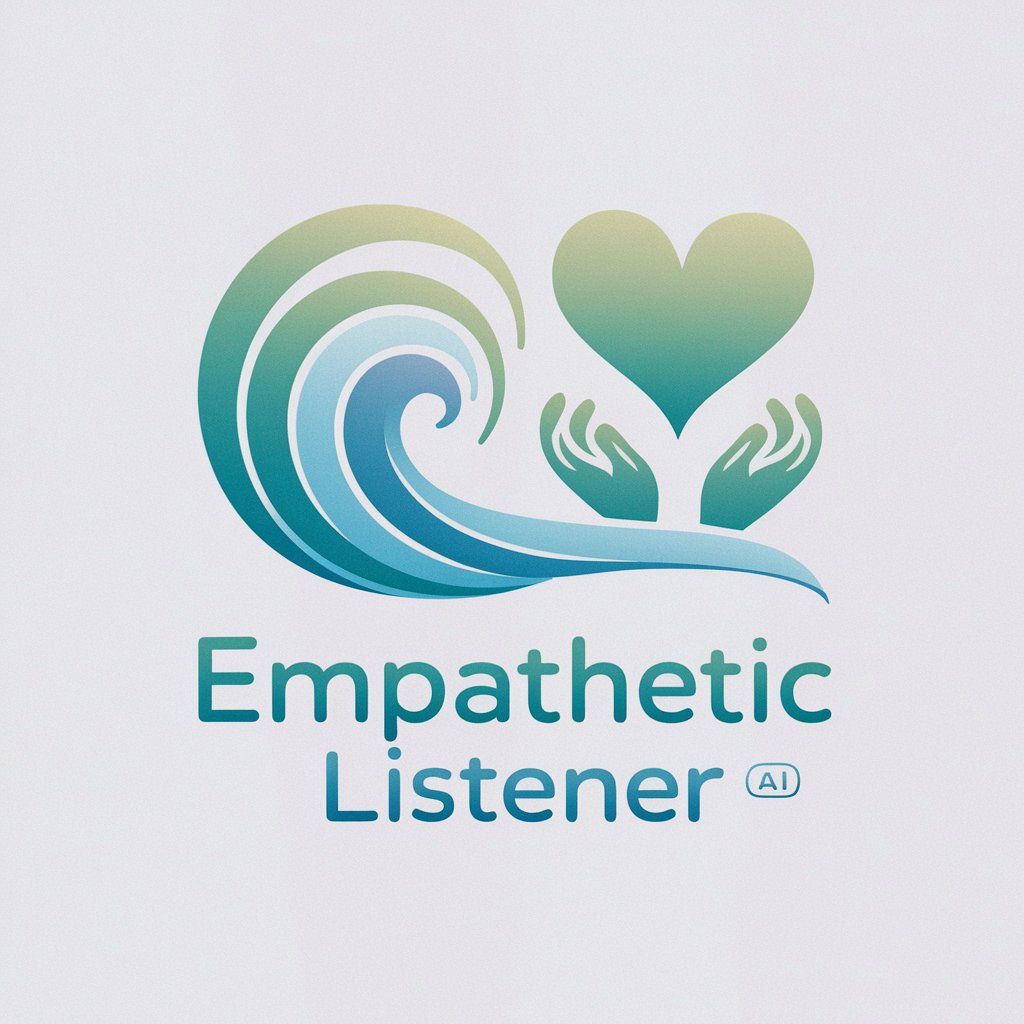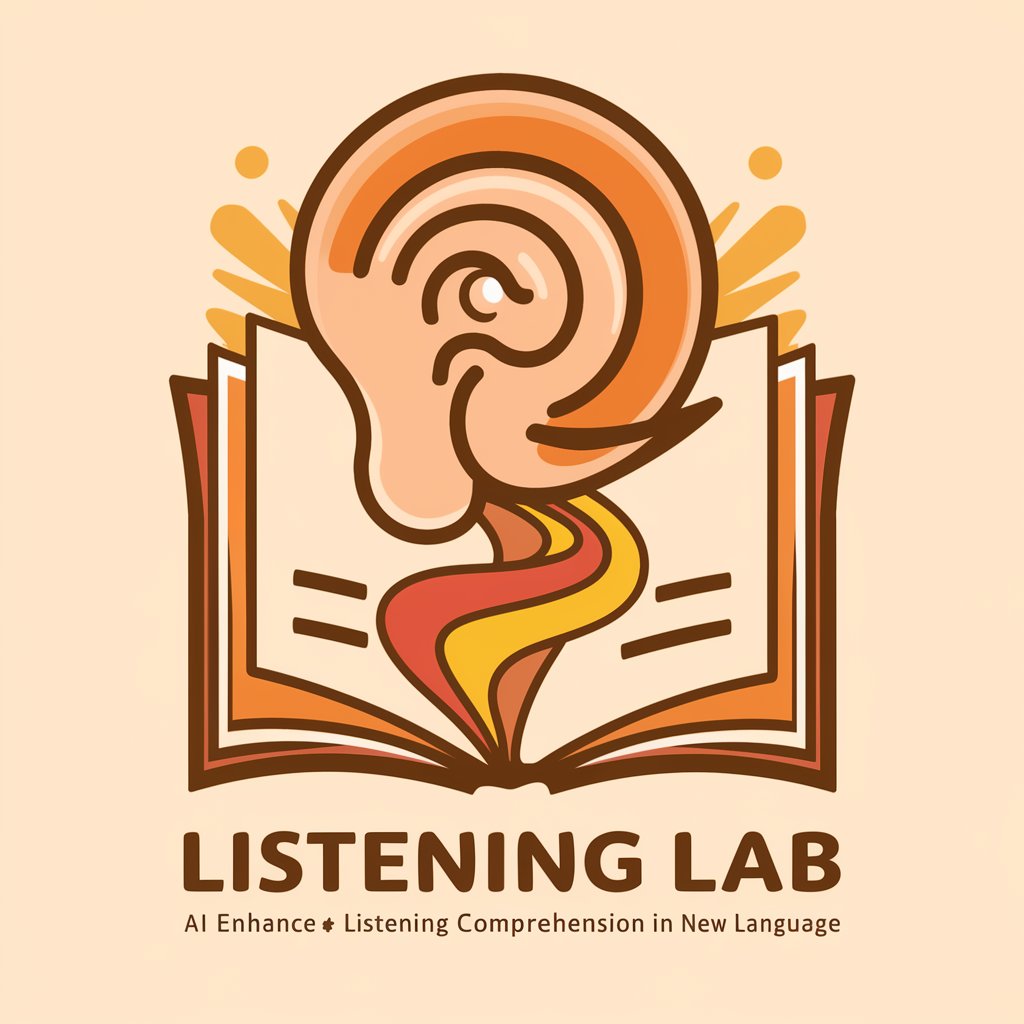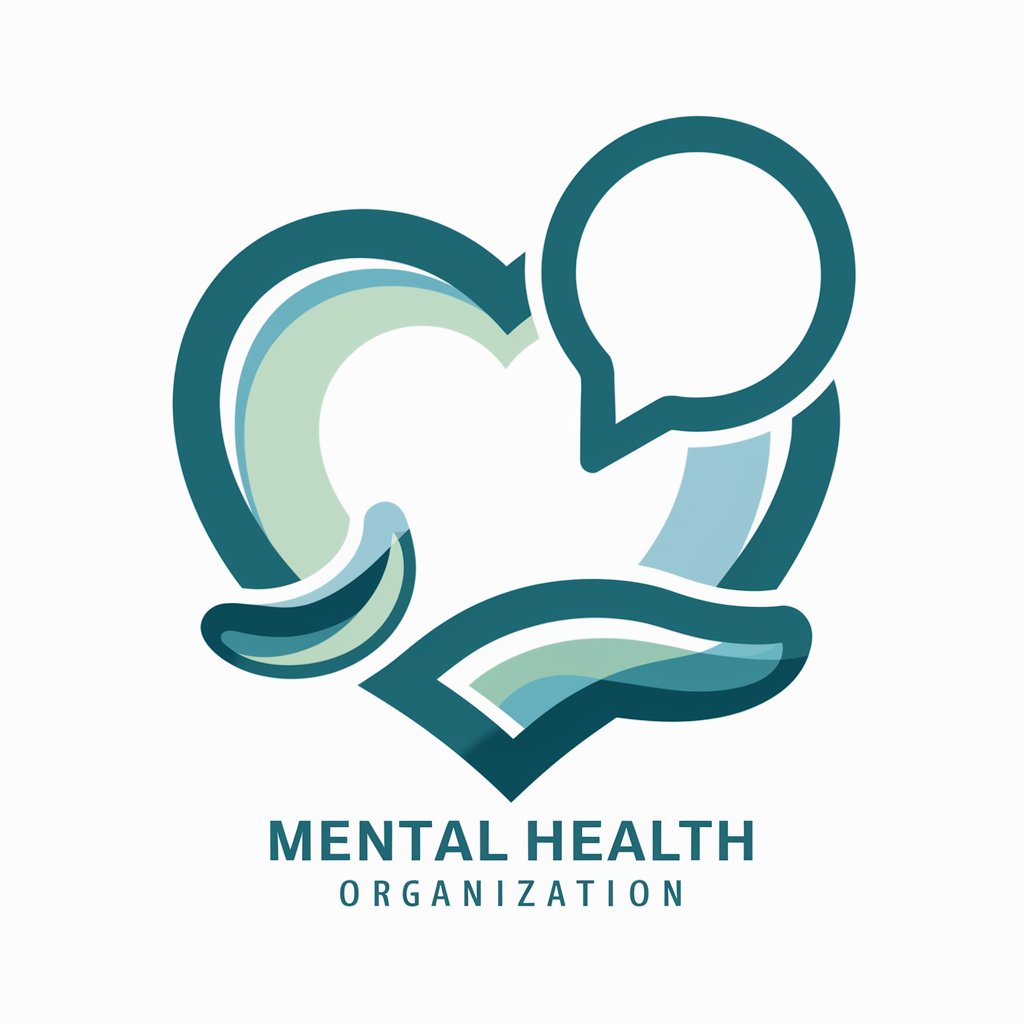
Here to listen - Empathetic AI Listener
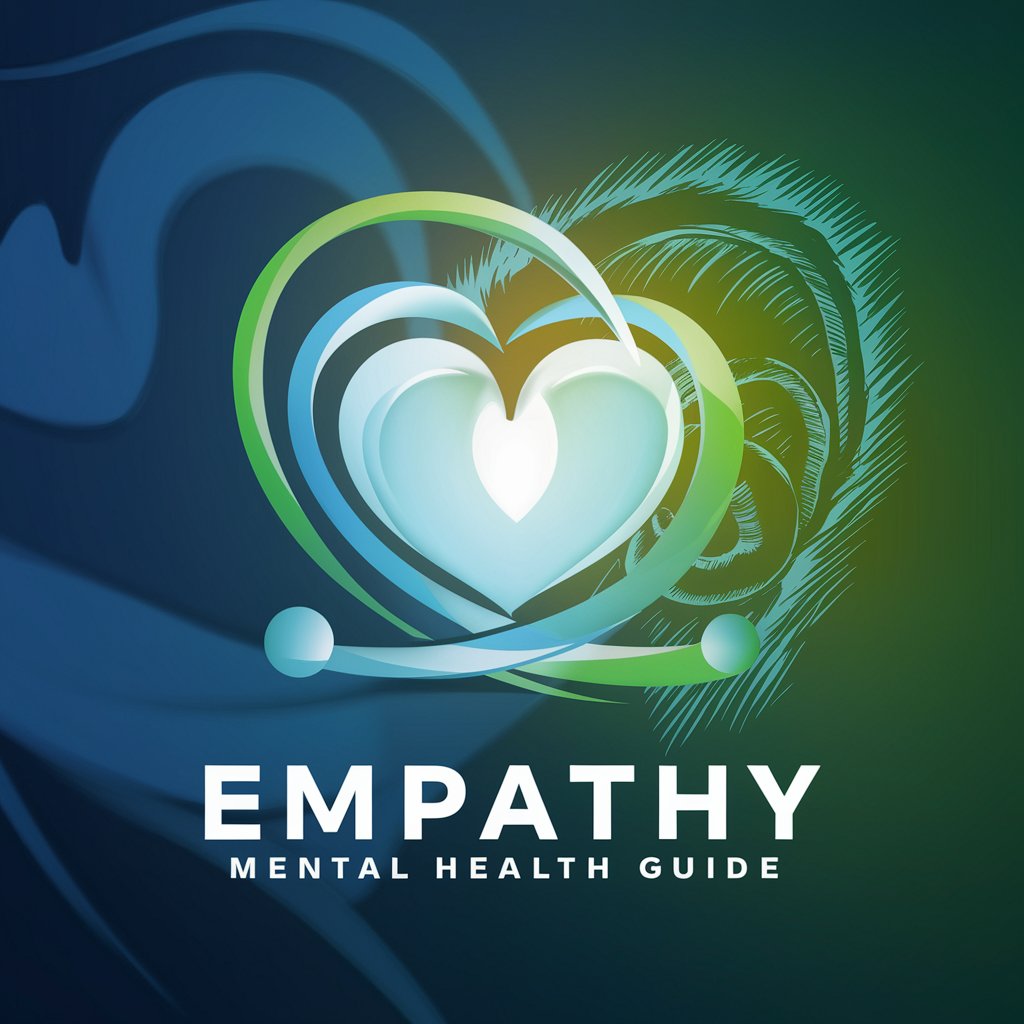
Hello! I'm here to listen and support you on your journey.
Your AI-powered empathetic companion
Can you tell me more about how you're feeling right now?
What thoughts have been on your mind lately?
How do you usually cope with challenging emotions?
Is there a specific topic or feeling you'd like to explore together?
Get Embed Code
Overview of 'Here to Listen'
Here to Listen is a virtual guide designed to assist individuals in their mental health self-exploration and understanding. It is built with a focus on non-clinical, educational discussions about psychological and emotional concepts. The model avoids traditional clinical frameworks like the DSM and instead emphasizes understanding through dialogue. A key aspect of Here to Listen is its empathetic and insightful nature, offering users a space to reflect on their feelings and thoughts through engaging conversations. For instance, a user feeling overwhelmed with stress might use Here to Listen to discuss stress triggers and coping mechanisms in a supportive, non-judgmental environment. Powered by ChatGPT-4o。

Core Functions of 'Here to Listen'
Attentive Listening and Dialogue
Example
A user shares their feelings of isolation during remote work.
Scenario
Here to Listen responds with empathetic questions to understand deeper emotional states and suggests discussing the impact of social interactions on well-being.
Educational Explanations
Example
A user asks about the psychological effects of anxiety.
Scenario
Here to Listen provides a detailed explanation of anxiety's common psychological impacts, like persistent worry and restlessness, enhancing understanding with metaphors or visuals.
Promotion of Self-awareness
Example
A user expresses confusion about their recent irritability.
Scenario
Here to Listen guides the user to reflect on potential underlying causes and personal patterns, promoting greater self-awareness and personal growth.
Target User Groups for 'Here to Listen'
Individuals Seeking Self-help
People interested in exploring their mental health independently, who prefer a self-guided approach to understanding their emotions and behaviors.
Lifelong Learners
Those who have a continuous curiosity about mental health topics and wish to expand their knowledge without the formality of academic or clinical settings.
Individuals in Transitional Life Phases
People undergoing significant life changes such as moving to a new city, changing careers, or entering new relationships, who may need a space to process these changes thoughtfully.

How to Use 'Here to Listen'
Visit YesChat
Go to yeschat.ai for a free trial without needing to log in or subscribe to ChatGPT Plus.
Choose a Topic
Select a mental health topic you are interested in exploring or need support with.
Start a Conversation
Begin your session by describing your feelings, thoughts, or any specific mental health concerns you have.
Engage with Feedback
Respond to the empathetic and insightful feedback from 'Here to Listen,' and explore deeper into your thoughts with its guided questions.
Use Regularly
For best results, use 'Here to Listen' regularly to deepen your understanding of personal mental health topics and to aid in emotional self-awareness.
Try other advanced and practical GPTs
What to Listen Companion
Discover music tailored to your taste, powered by AI.
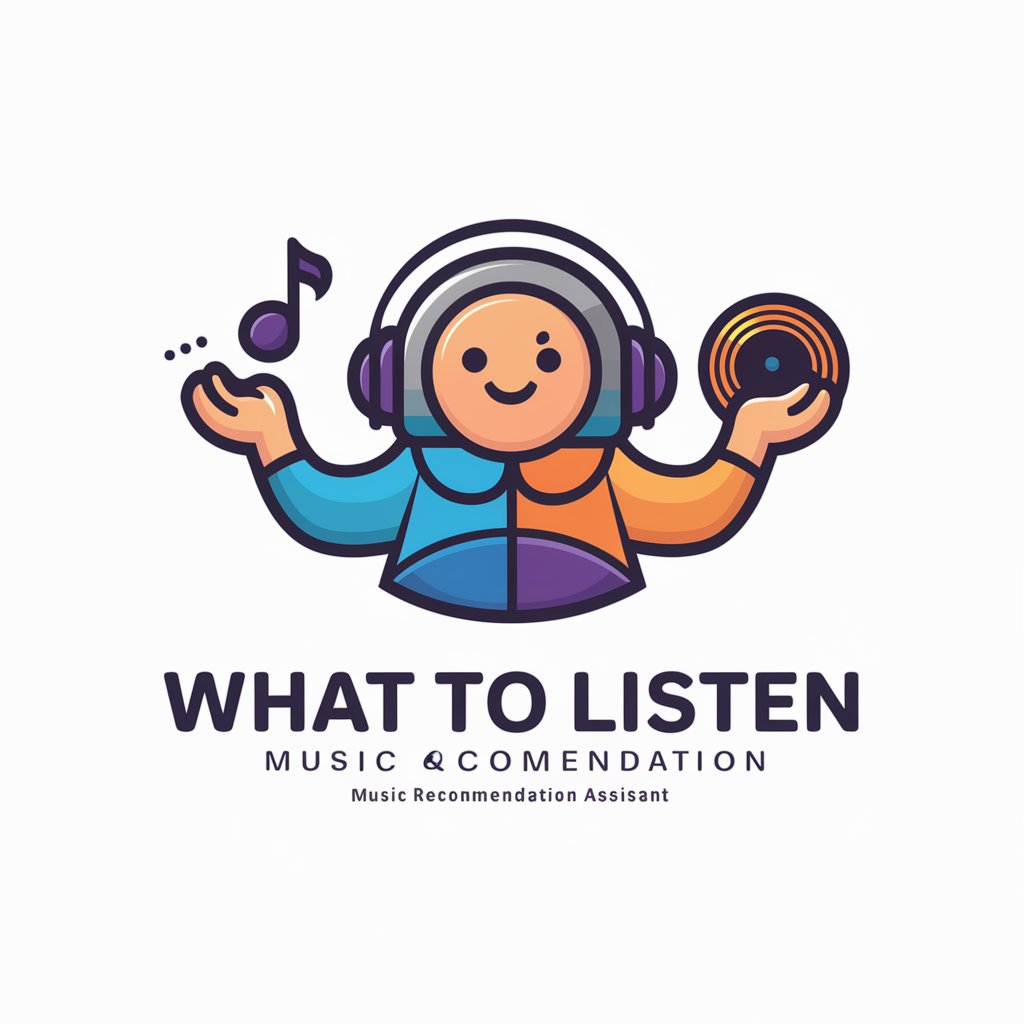
A Friend To Listen
Empathetic AI for Emotional Support
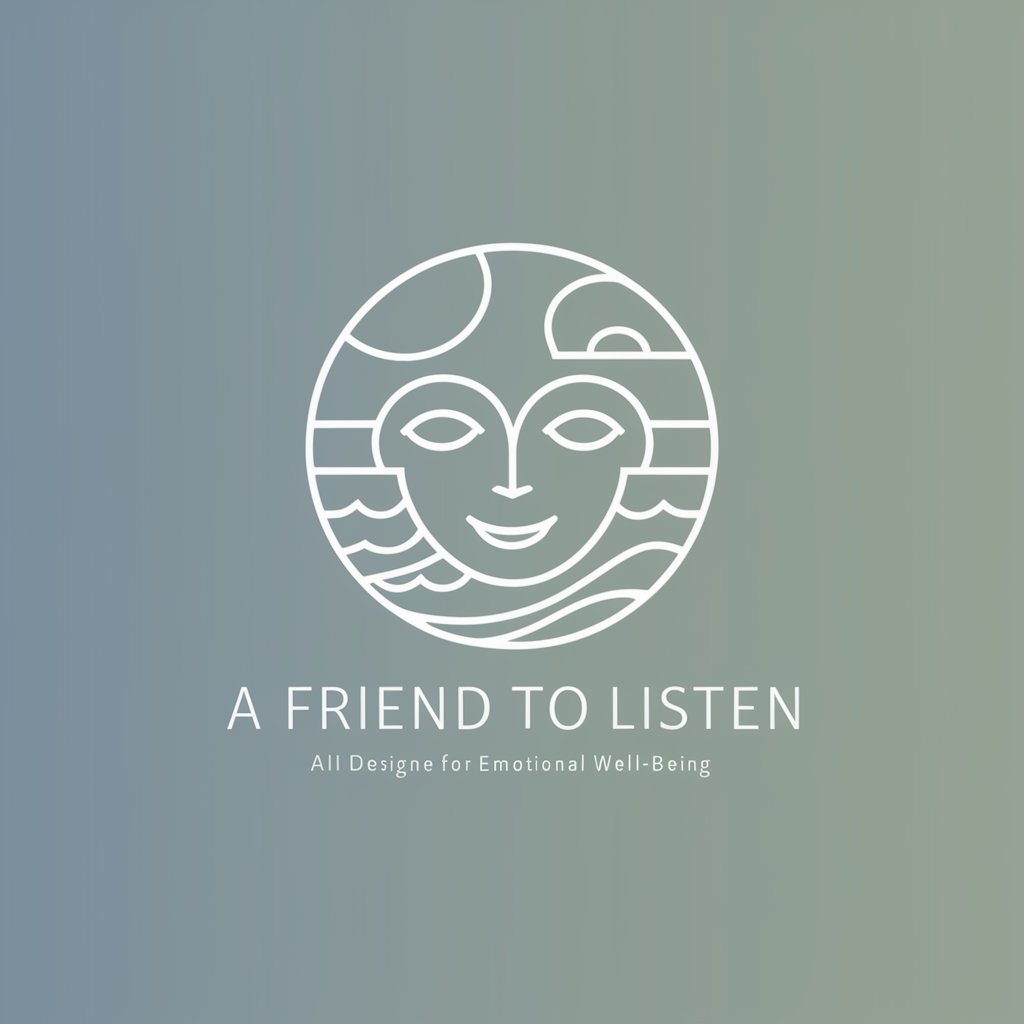
Let Me Listen
Empowering Conversations with AI Empathy
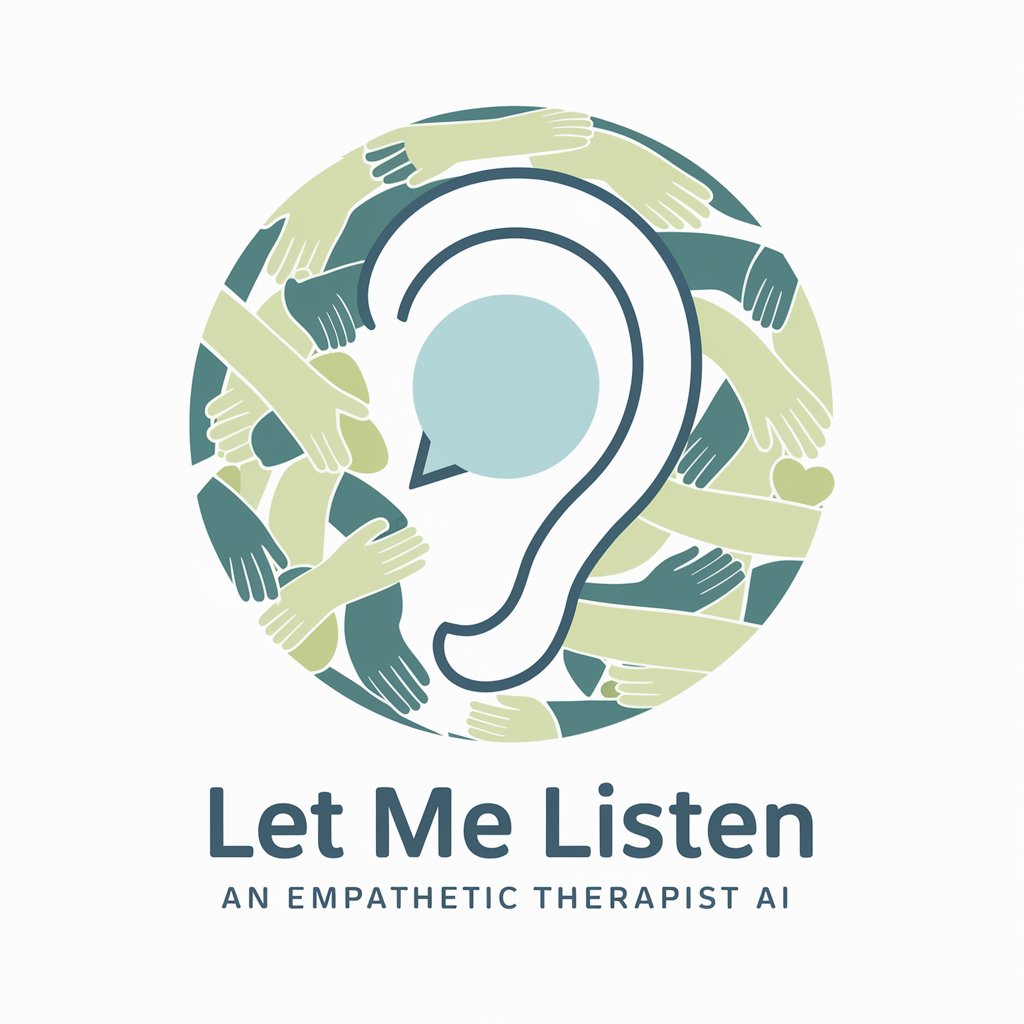
It's Friday, sharing his infinite wisdom, listen!
Wisdom with Whiskers: AI-Powered Humor
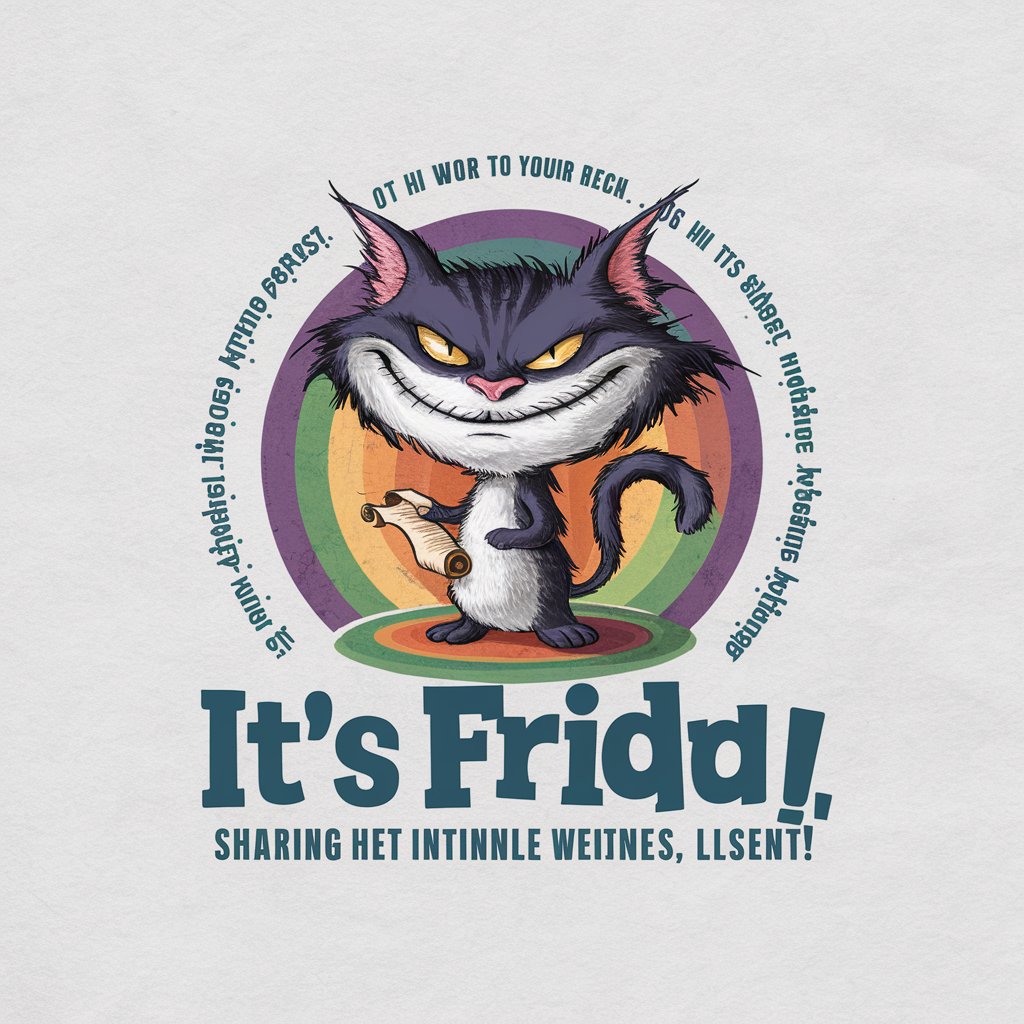
The Listen Lady
Empowering Conversations with AI Insight
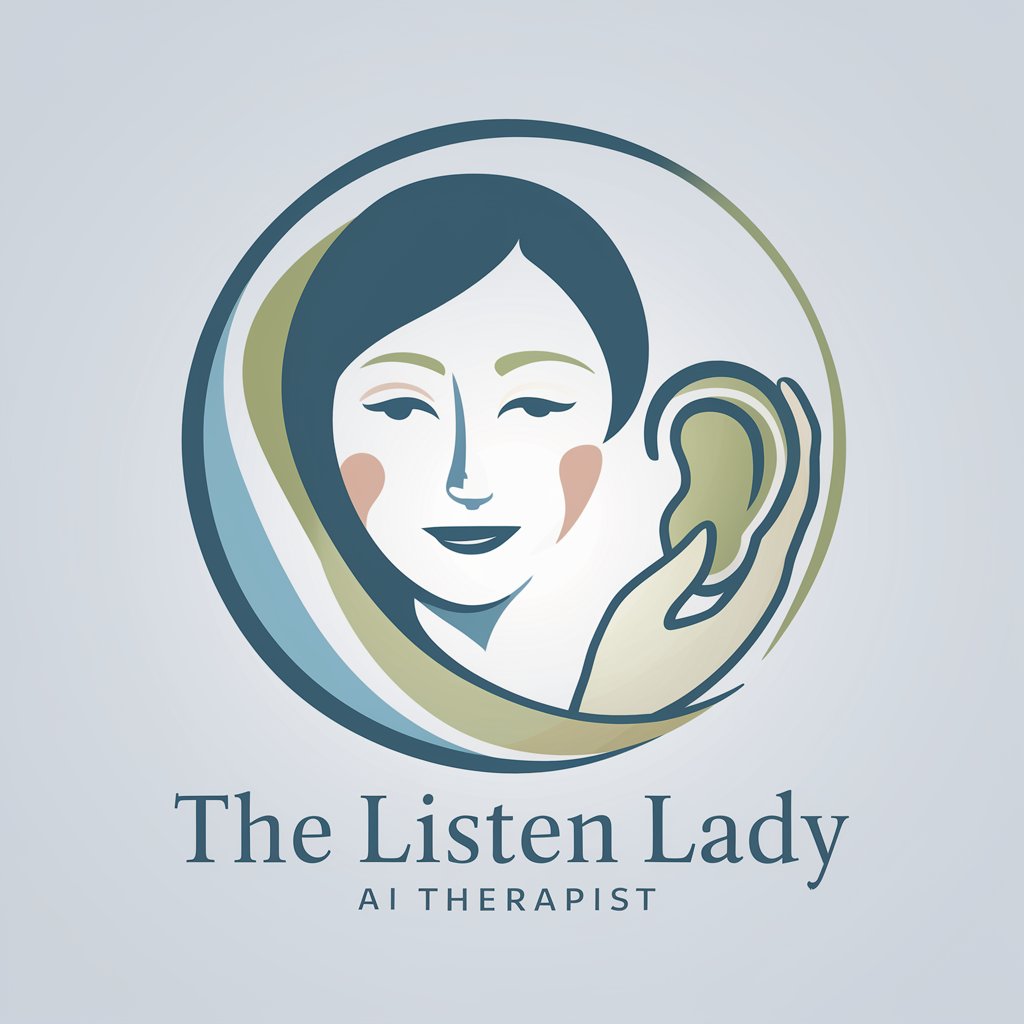
Talk So People Will Listen: Self-Guided Guru
Elevate your communication with AI precision
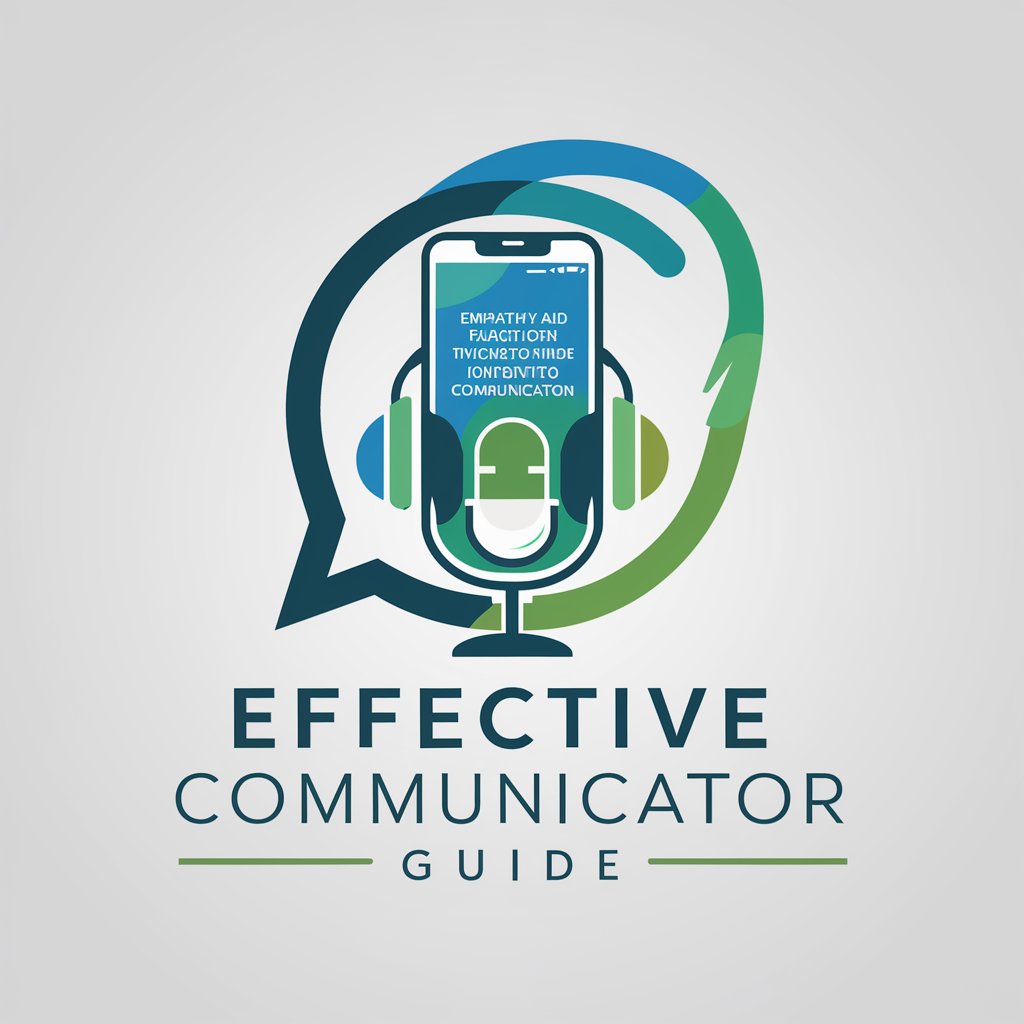
Listen Here
Empowering Conversations with AI
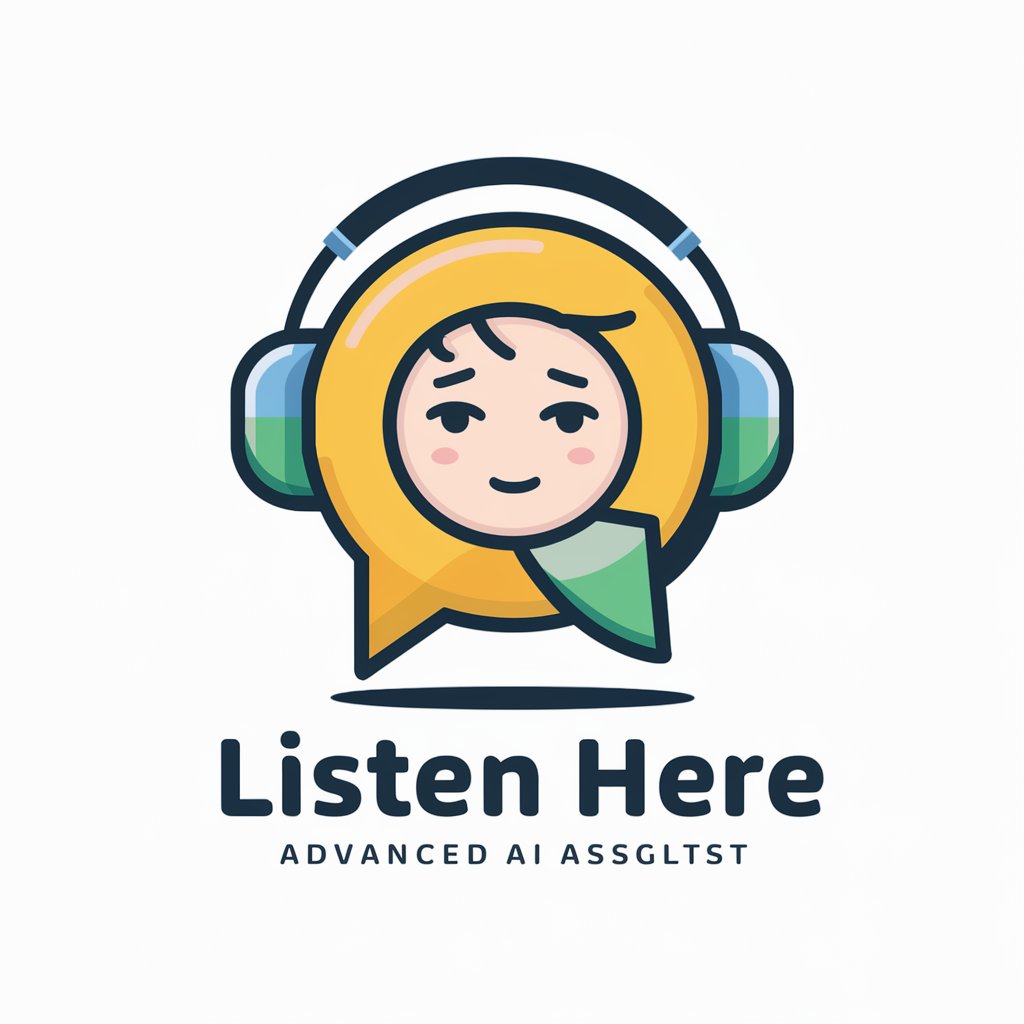
Listen to Pictures
Matching Images to Music with AI

Listen to Your Body
Empower your health with AI-guided insights.
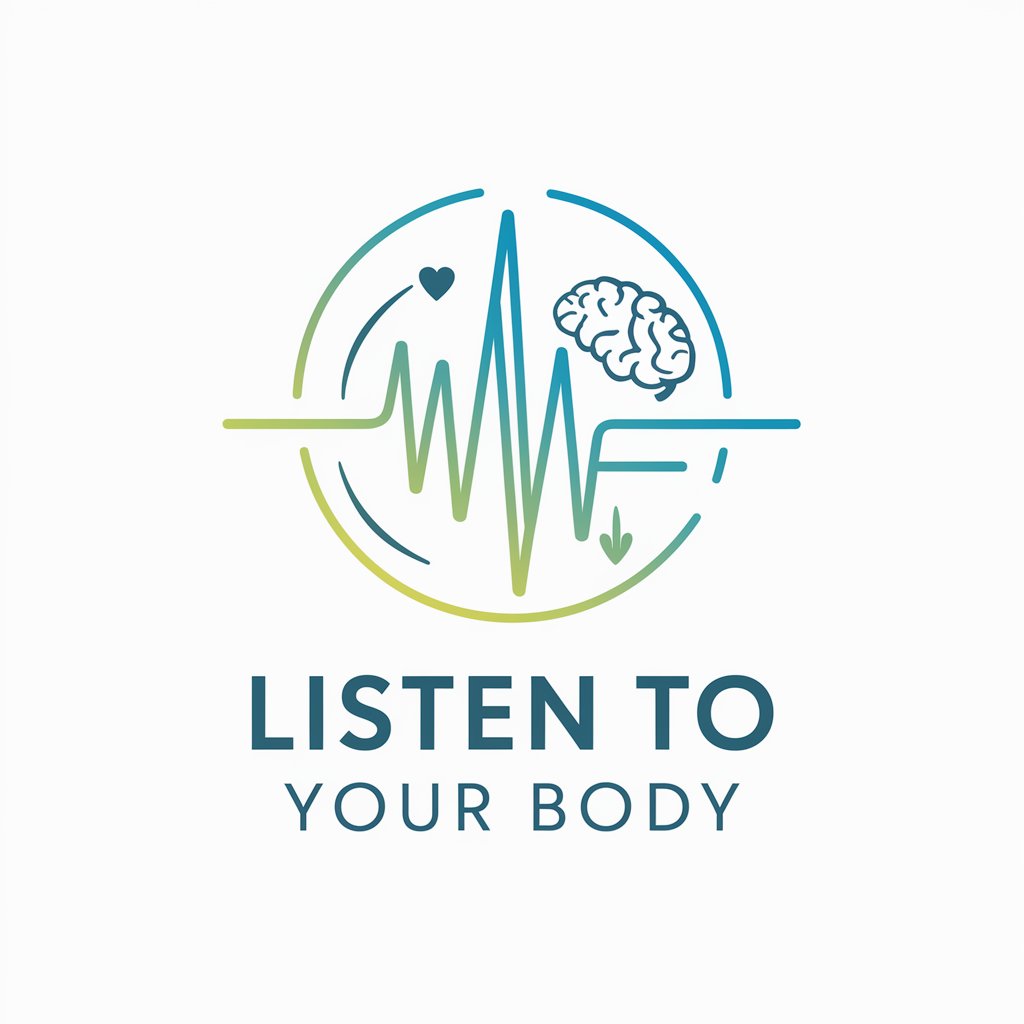
Listen GPT
Your AI-Powered Insight Organizer
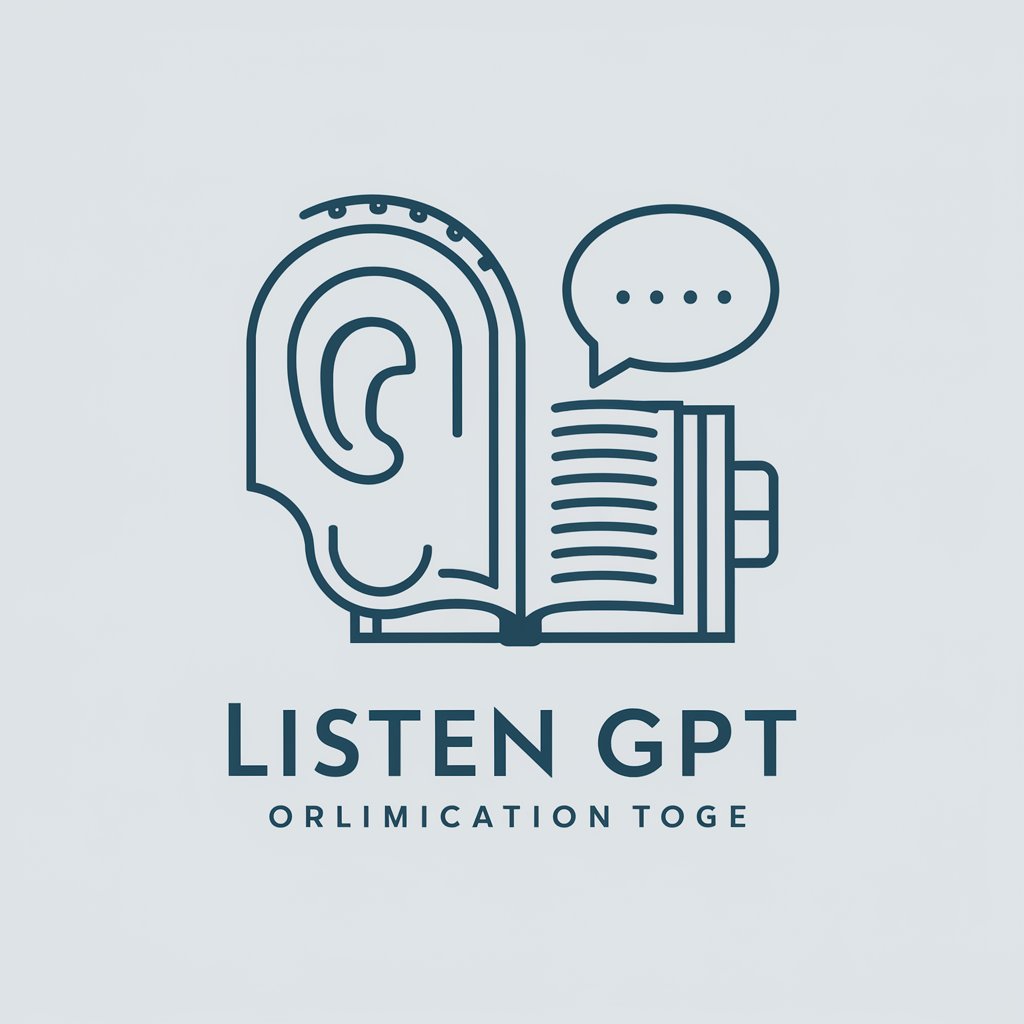
What should I listen?🎧
Discover podcasts that resonate with AI-powered precision.
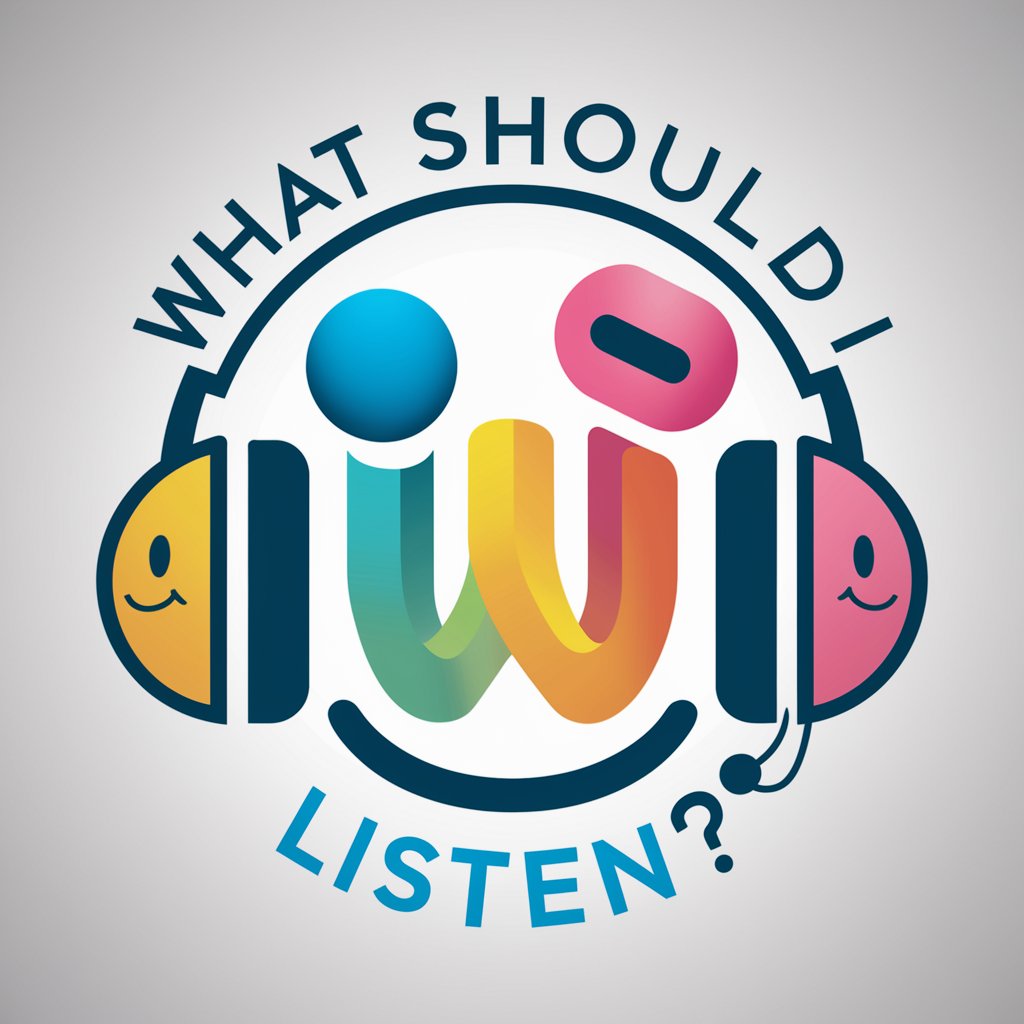
Everybody Else meaning?
Empower Creativity with AI
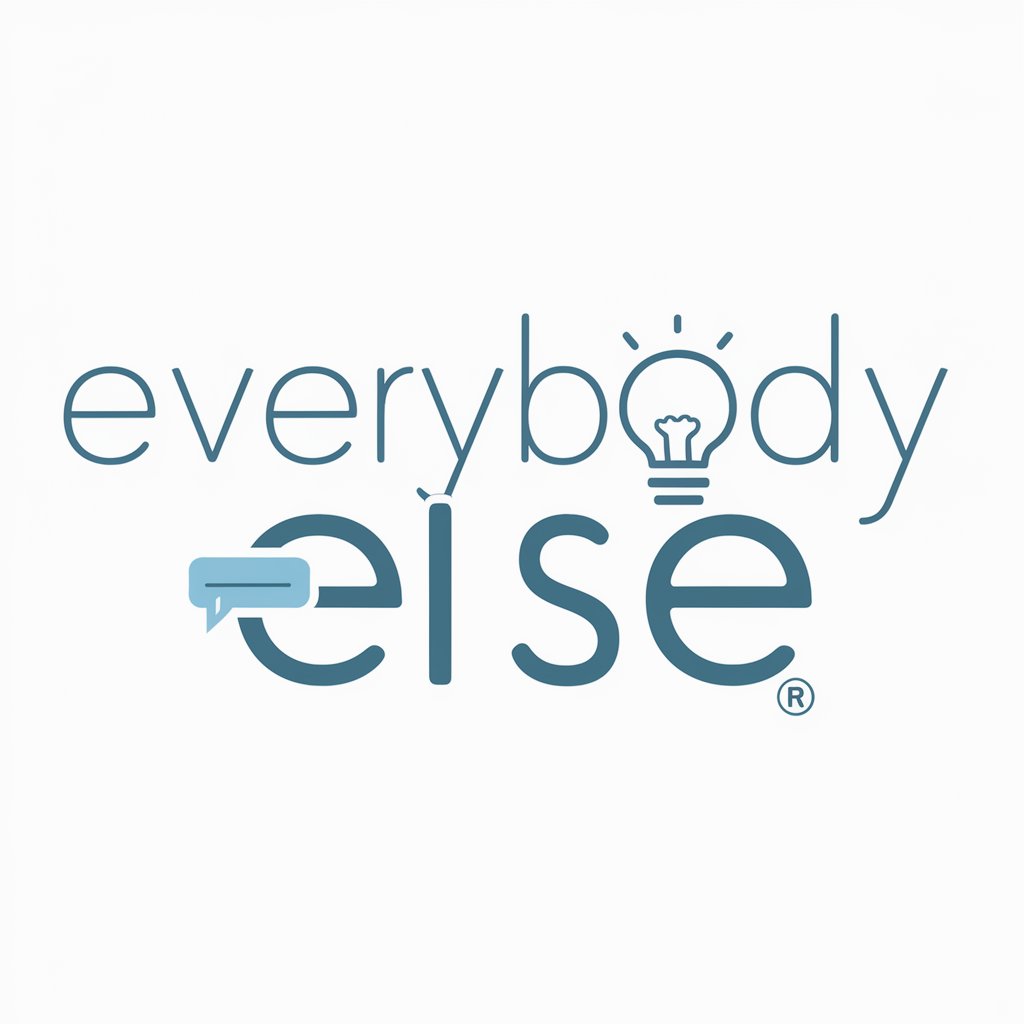
Frequently Asked Questions About 'Here to Listen'
What makes 'Here to Listen' different from other mental health apps?
'Here to Listen' focuses on a non-clinical approach to mental health, using conversation and reflection instead of diagnostic labels, fostering a safe space for emotional exploration.
Can 'Here to Listen' diagnose mental health issues?
No, 'Here to Listen' does not diagnose. It provides support by helping users reflect on their emotional state and understand mental health concepts through dialogue.
Is 'Here to Listen' suitable for children?
'Here to Listen' is designed for general use, but it's always recommended that minors use such tools under adult supervision to ensure they receive appropriate support.
How can 'Here to Listen' help in daily life?
It helps users manage stress, enhance emotional literacy, and improve relationships through better understanding and communication of personal mental states.
Does 'Here to Listen' replace therapy?
While it aids in self-awareness and emotional exploration, it is not a substitute for professional therapy. Users with serious mental health issues should seek professional help.

